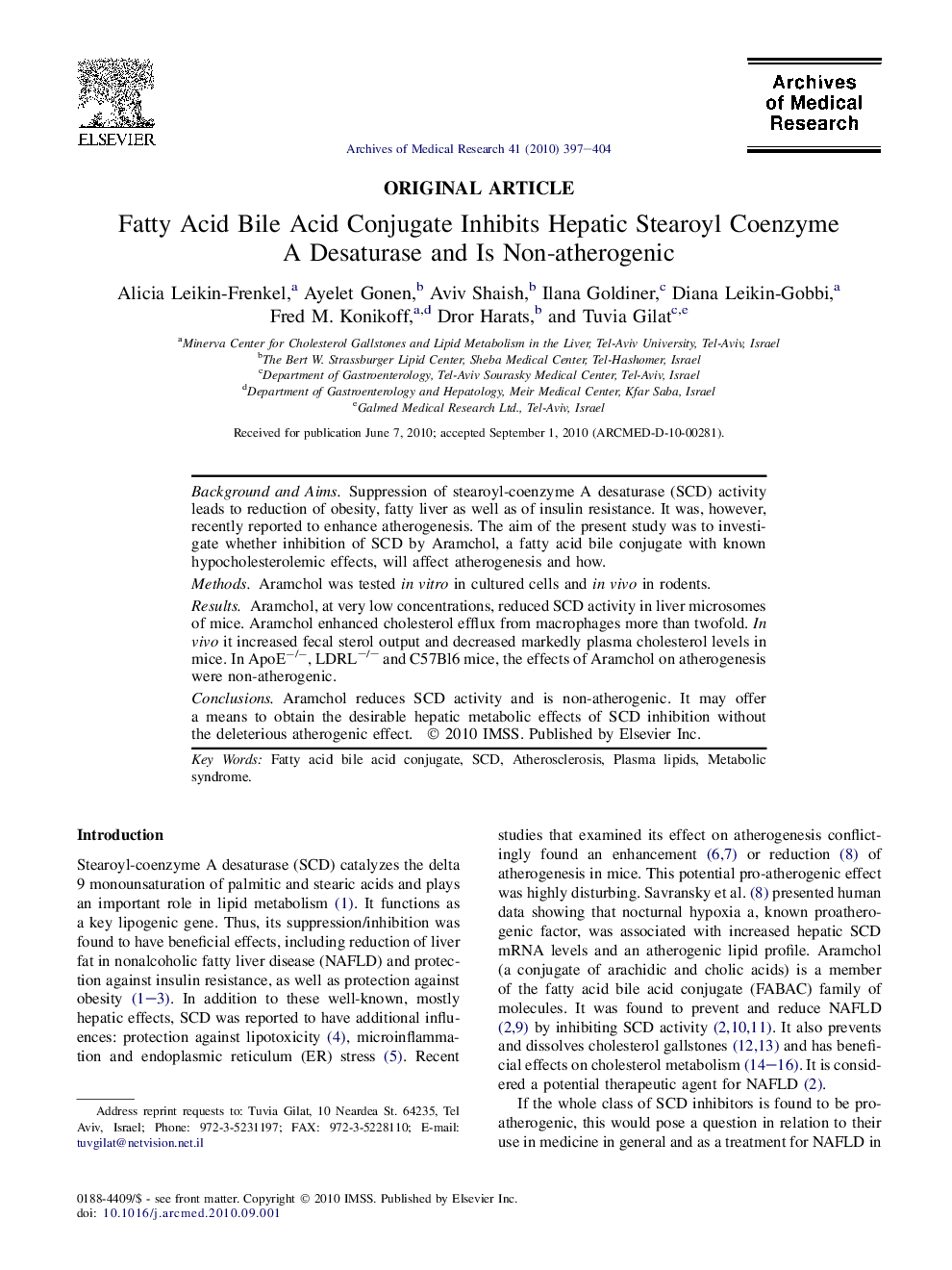| Article ID | Journal | Published Year | Pages | File Type |
|---|---|---|---|---|
| 3447044 | Archives of Medical Research | 2010 | 8 Pages |
Background and AimsSuppression of stearoyl-coenzyme A desaturase (SCD) activity leads to reduction of obesity, fatty liver as well as of insulin resistance. It was, however, recently reported to enhance atherogenesis. The aim of the present study was to investigate whether inhibition of SCD by Aramchol, a fatty acid bile conjugate with known hypocholesterolemic effects, will affect atherogenesis and how.MethodsAramchol was tested in vitro in cultured cells and in vivo in rodents.ResultsAramchol, at very low concentrations, reduced SCD activity in liver microsomes of mice. Aramchol enhanced cholesterol efflux from macrophages more than twofold. In vivo it increased fecal sterol output and decreased markedly plasma cholesterol levels in mice. In ApoE−/−, LDRL–/– and C57Bl6 mice, the effects of Aramchol on atherogenesis were non-atherogenic.ConclusionsAramchol reduces SCD activity and is non-atherogenic. It may offer a means to obtain the desirable hepatic metabolic effects of SCD inhibition without the deleterious atherogenic effect.
